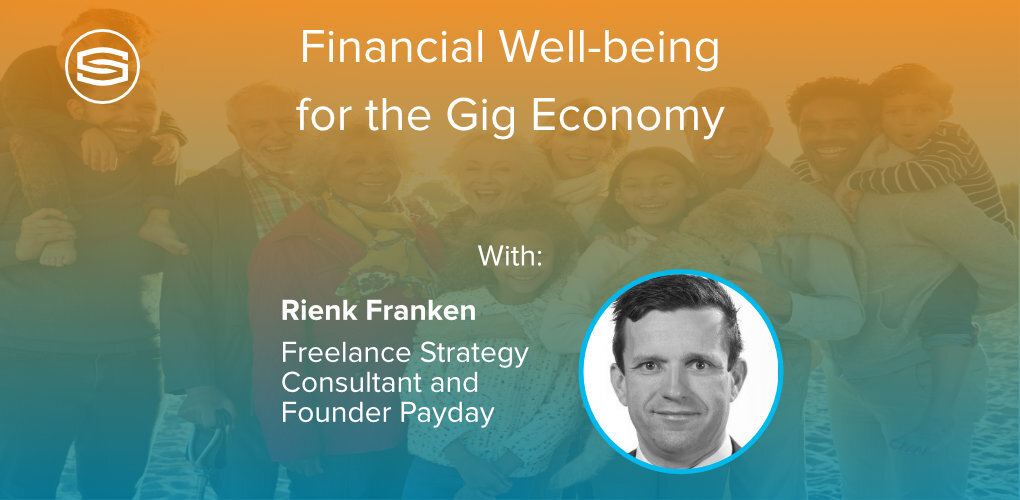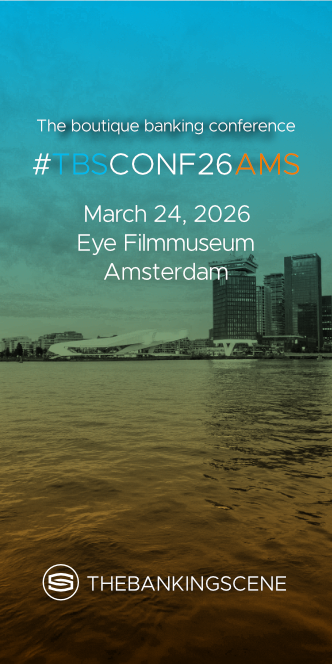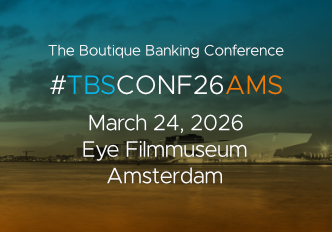
Insights & Opinions
Financial Well-being for the Gig Economy
Tue, 28 Mar 2023


Frequent readers know that financial well-being is a recurring topic on the agenda of our virtual round tables. On March 23, we spoke about financial well-being for the gig economy, and it taught me yet another vital element when defining financial well-being.
We invited Rienk Franken, Freelance Strategy Consultant and Founder of Payday, an ABN AMRO solution that "makes it possible to pay out gig workers instantly. Instant gratification leads to more filled shifts for your platform, a higher NPS score and an increase in the volume of workers."
Redefining Financial Well-being
From my own research, and the many talks on financial well-being in the past, this is the best definition for financial well-being I have found so far, by the Consumer Financial Protection Bureau: "it is a state of being, wherein a person can fully meet current and ongoing financial obligations can feel secure in their financial future and can make choices that allow enjoyment of life, a highly personal state not fully described by objective financial measures."
Based on his research, Rienk acknowledged the highly personal state and emphasised the diversity in the gig economy. Nevertheless, he wanted to add to the definition that people also wish to be in control. In control of when, where, how and for whom to work, and also against which compensation. He argues that for gig workers there is a difference between financial security and financial well-being, because of this desire to be in control of their income.
Of course, one could argue whether or not this fall under the element "able to make choices that allow enjoyment of life", but I think Rienk has a valid point. The interpretation of work, of financial income, deserves to be a topic on its own in this definition, especially given the size of the population we talk about.
The Size of the Gig Economy
Because ChatGPT provided various answers on the size of the gig worker community, I asked Rienk how many people we are talking about. He explained that around 1,7 million Dutch consumers are gig workers, around 15% of the Dutch labour force, and they make a cumulative earning of 2,5 billion, or close to 1,5% of GDP.
The reason why ChatGPT spoke about 4 million when I asked for it, Rienk explained: "the remaining group are represented by temp workers and freelancers who work less than 10 hours per month and those on long term fixed hour contracts, or the other side of the spectrum, knowledge workers and consultants who can charge 200 euros per hour."
As we go up North in Europe, Rienk witnessed much better social security in the Nordics, with a smaller gig economy, but as we go south, to, for example, Spain, labour flexibility is higher and the employment rate lower, resulting in a higher portion of the population in the gig economy.
He also explained that a European Platform Worker Directive is on its way, but so far, the market remains fragmented, and it is not clear how powerful this new directive will be.
Rienk: "The gig worker ecosystem is not a community. It's not in any way a homogeneous group. A large component of the group is young people still working in school or university, and they don't care about Social Security or, for that matter, insurance. Personally, I feel that these people also should have minimum insurance, for example, against liabilities during their work, or accidents that cause inability." In the same breath, he admitted that these students might think differently about it than him.
Their main concern is flexibility and freedom, and they care less about the worst-case scenarios that they can be insured against.
Financial Well-being for the Gig Economy
The gig economy is undeniably linked to the platform economy, platforms that bring together supply and demand for labour for specific tasks or jobs. Think Uber, Temper, Fiverr, or Charly Cares. These platforms can be extremely useful, but in terms of financial well-being, there can also be a risk.
Rienk: "The public debate evolves specifically around platforms on the far end of the spectrum operating in the grey area between labour contract and freelancing like Uber and Deliveroo. These platforms provide much less control required for good financial well-being. People on these platforms have no involvement and don't have much to say. As a worker, you can refuse to work and decide not to do it, and that is it. People on these platforms have a higher than average representation of more vulnerable parts of society, like migrant workers or foreign students."
One of the key concerns of gig workers is that they often apply for an instant job because they instantly need money, but most of these platforms do not do instant payouts.
Furthermore, many of these people don't have access to proper insurance against unforeseen circumstances or the right Social Welfare protection. Sometimes it is even more specific, like taxi drivers, often independent drivers with expensive cars insurance who are forced to drive long hours simply to cover the insurance policy.
Payday Improved Financial Well-being of Gig Workers
Payday was set up as a corporate venture within ABN AMRO Innovation Lab by Rienk Franken and his colleague Bartolomeo De Vitis. They researched many platforms, and spoke to large numbers of gig workers. They also tested these platforms by participating as a gig worker a deep understanding of the life of gig workers.
Although various problems were related to insurance, it was not part of the initial solutions of Payday. Rienk explained that insurance products are relatively complex and were managed at ABN AMRO by a joint venture with Nationale Nederlanden, increasing the number of stakeholders in a large corporate setting, which would slow down developments.
“We did look at, for example, swipe on swipe of insurances for the taxi market to reduce the pressure to make long hours, similar to what, for example, Quover, the Belgian Fintech, is offering for delivery riders, but also concluded that the taxi market did not have the scaleability to offer proper revenue potential.”
Instead of insurance products, Payday set up a service to connect gig platforms to ABN AMRO's instant payments engine to enable instant payment of earnings. Rienk: "In deciding which problems to address, we did something called a TAM SAM SOM calculation, which is about a total Available, Serviceable and Obtainable Market and how much can you accomplish there. Maybe early payment was not the biggest pain, like insurances, but it was a pain that was felt across the various categories of gig workers, and that we, as a bank, could potentially resolve. This was a conscious decision that we made.”
Rienk: “When building Payday, we tried to remain under the radar of the large corporate machine and to be lean and agile when possible. Only nine months after starting with a blank sheet of paper, we went live with our first pilot with Charly Cares, the babysitting platform. Basically, a simple API connection between the backend of the platform and our instant payment engine, providing instant payment after the babysitter would finish her gig.”
Receiving the money earlier was one part of the solution, providing an app with instant financial insight in earnings was likely even more important. They found out that 50-80% of the users effectively wanted their money earlier, but that close to 100% of the users were happy with the instant gratification provided by instant insights in their earnings and having the possibility to take an advancement with and clear overview the of what remains.
Payday as part of the corporate innovation funnel, went from prove problem to prove solution, prove pay and prove scales, finally to be launched as an ABN AMRO product and hand over the mothership for transition in business as usual.
The successful delivery of a new and innovative product also marks the completion Rienk’s task as an intrapreneur and Payday Venture Lead, and move on as founder of the Blue Mind Company, amongst other offering strategy advice for companies in the flex economy or larger corporates with corporate venturing activities and mentoring for start-ups.
Conclusion
I really enjoyed this open talk on financial well-being on the one hand, and I gained much deeper insights is what many talk about, but few truly understand: the gig economy and its weaknesses. Of course, banks cannot solve everything at once and in that respect I admire Rienk's open conversation on how banks make those choices. They want to make lives of their customers better, but it should not be at the cost of the bank (we heard that before in the talk with Erste Group).


